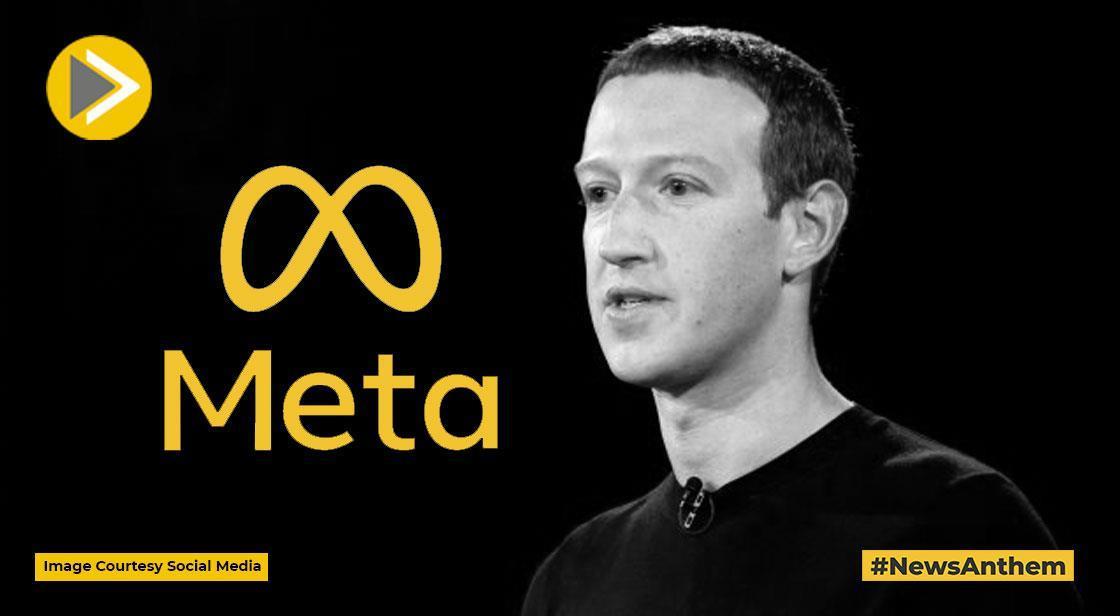Meta Launches V-JEPA 2: An AI That “Thinks and Sees” the World Like Humans

News Synopsis
Meta this week unveiled V-JEPA 2 (Video Joint Embedding Predictive Architecture 2), an advanced 1.2 billion‑parameter AI model designed to interpret and predict real-world dynamics much like human intuition. By absorbing over one million hours of video, V‑JEPA 2 learns how objects move, interact, and respond to actions, enabling machines to create internal "mental maps" of the physical world.
From Perception to Prediction and Planning
Unlike traditional AI that merely recognizes images or follows commands, V‑JEPA 2 advances machine intelligence by predicting outcomes. Meta explains: “As humans, we have the ability to predict how the physical world will evolve in response to our actions…” and adds that V‑JEPA 2 “helps AI agents mimic this intelligence.”. These capabilities are essential for autonomy in physical environments.
Empowering Robots with Zero‑Shot Planning
Meta reports that, when tested on lab robots, V‑JEPA 2 enabled them to handle previously unseen objects and scenarios. Robots were able to choose and execute step-by-step actions—like picking and placing items—simply by interpreting their current view and a target goal image.
Tools for the AI Research Community
To foster collaboration, Meta open‑sourced the V‑JEPA 2 model and launched three new benchmarks—IntPhys 2, Minimal Video Pairs, and CausalVQA—to help researchers assess world understanding, prediction, and planning from video.
What Sets V‑JEPA 2 Apart
Building on last year’s V‑JEPA, the upgraded V‑JEPA 2 significantly improves visual reasoning and predictive power. It’s capable of “zero‑shot robot planning,” meaning robots can successfully perform new tasks without extra training data.
Meta’s Vision for Advanced Machine Intelligence
V‑JEPA 2 represents a key step toward Meta’s broader goal of creating Advanced Machine Intelligence (AMI)—systems that observe, reason, plan, and interact with the physical world like humans. The next frontier includes equipping AI with capabilities such as long-term planning and sensory input beyond vision, like touch and audio.
About Meta
Meta Platforms, Inc., commonly known simply as Meta, is an American multinational technology conglomerate based in Menlo Park, California. It is one of the "Big Five" American technology companies, alongside Alphabet (Google), Amazon, Apple, and Microsoft. While its public identity is now strongly tied to the metaverse, its history is rooted in the revolutionary social media platform, Facebook.
1. From "TheFacebook" to Facebook, Inc. (2004-2011)
-
Founding (2004): The company was founded by Mark Zuckerberg on January 4, 2004, along with his Harvard College roommates and fellow students Eduardo Saverin, Andrew McCollum, Dustin Moskovitz, and Chris Hughes. It was initially launched as "TheFacebook" – an online directory intended for Harvard students to connect with each other.
-
Expansion (2004-2006): The platform quickly gained traction and expanded beyond Harvard to other universities, then high schools, and eventually, in September 2006, it was opened to anyone over the age of 13 with a valid email address. This expansion was a critical step in its journey to becoming a global phenomenon.
-
Renaming to Facebook (2005): In 2005, "TheFacebook" dropped "The" from its name and became simply "Facebook, Inc."
-
Key Features and Growth: Early innovations like the News Feed (introduced in 2006, initially controversial but later a cornerstone of engagement), photo sharing, and the "Like" button (introduced in 2009) helped Facebook dominate the social media landscape. It rapidly accumulated millions of users worldwide.
2. Strategic Acquisitions and Mobile Dominance (2012-2020)
-
IPO (2012): Facebook went public on May 18, 2012, with one of the largest initial public offerings (IPOs) in tech history, raising over $16 billion. This solidified its position as a major tech player.
-
Key Acquisitions: Recognizing the evolving digital landscape, Facebook made strategic acquisitions that significantly broadened its reach and diversified its offerings:
-
Instagram (2012): Acquired for approximately $1 billion, Instagram expanded Facebook's presence in photo and video sharing, appealing to a younger demographic.
-
WhatsApp (2014): Acquired for a staggering $19 billion, WhatsApp solidified Meta's dominance in instant messaging, adding over a billion users to its network.
-
Oculus VR (2014): Acquired for $2 billion, this marked Facebook's first major foray into virtual reality (VR) technology, signaling future ambitions beyond traditional social networking.
-
-
Mobile-First Strategy: The company successfully pivoted from a desktop-centric platform to a mobile-first strategy, which was crucial for its sustained growth and significantly boosted its advertising revenue.
-
Controversies: This period also saw Facebook grappling with increasing scrutiny over data privacy (e.g., Cambridge Analytica scandal in 2018), misinformation, content moderation, and its impact on mental health. These challenges would continue to dog the company.
3. Rebranding to Meta and the Metaverse Vision (2021-Present)
-
Rebranding to Meta (2021): On October 28, 2021, Facebook, Inc. rebranded itself as Meta Platforms, Inc. This significant change reflected Mark Zuckerberg's strategic pivot and ambitious vision to build the "metaverse" – an interconnected digital ecosystem spanning virtual and augmented reality technologies, where users could interact in immersive virtual spaces. The renaming underscored the company's commitment to moving beyond traditional 2D screens and social media.
-
Two Core Business Segments: Today, Meta operates primarily through two segments:
-
Family of Apps (FoA): This segment includes its core social media and communication platforms: Facebook, Instagram, Messenger, Threads, and WhatsApp. Advertising on these platforms remains the primary revenue driver, accounting for "97.8 percent" of its total revenue in 2023.
-
Reality Labs (RL): This segment is dedicated to developing augmented, mixed, and virtual reality related consumer hardware, software, and content. It includes products like Meta Quest devices and content available through the Meta Horizon Store, integral to the metaverse vision.
-
-
Focus on AI (2024-2025): Mark Zuckerberg has increasingly emphasized Artificial Intelligence (AI) as a central focus for Meta's future, seeing it as critical to building smarter, more efficient, and deeply personalized digital experiences across all its platforms.
-
Llama Series: Meta has been investing heavily in developing its large language models, notably the Llama series (e.g., Llama 4), which are integrated into its core apps like Facebook, Instagram, and WhatsApp, reaching billions of users.
-
AI Talent Acquisition: In June 2025, Meta was reported to be aggressively poaching top AI engineers from leading tech firms like Google DeepMind and Sesame AI to build a new "superintelligence" group, aiming to develop more powerful systems for speech recognition and personalized AI features, particularly artificial general intelligence (AGI).
-
Investment in Scale AI: Meta is reportedly close to finalizing a multibillion-dollar investment, potentially exceeding $10 billion, in the data labeling AI startup Scale AI. This represents a significant external investment in AI, contrasting with Meta's traditional focus on internal research.
-
-
Financial Performance: Meta has demonstrated strong financial performance. Its annual revenue for 2024 was $164.501 billion, a "21.94% increase" from 2023. As of June 10, 2025, Meta's market capitalization stands at approximately $1.77 trillion. Its revenue for the twelve months ending March 31, 2025, was $170.360 billion, a "19.37% increase" year-over-year.
-
Ongoing Challenges: Despite its growth, Meta continues to face significant challenges:
-
Regulatory Scrutiny: The company is consistently under fire from regulators worldwide, particularly in the EU, over issues like data privacy, antitrust concerns, and content moderation. As of June 2025, Meta (along with TikTok) is challenging the EU's Digital Services Act (DSA) fees in court, arguing they are "unfair and disproportionate" and based on flawed calculations.
-
Metaverse Investment: While the metaverse remains a long-term vision, the Reality Labs segment has incurred significant operating losses, making its profitability a subject of investor debate.
-
Competition: Meta faces intense competition from other social media platforms (like TikTok), messaging apps, and emerging AI companies.
-
Meta's journey is a testament to its constant evolution, from a simple college social network to a global technology giant striving to build the next generation of digital interaction. Its future hinges on its ability to successfully navigate regulatory pressures, monetize its metaverse investments, and maintain its lead in the rapidly advancing field of artificial intelligence.
Conclusion
With V‑JEPA 2, Meta has taken a major leap toward building truly intelligent AI agents capable of autonomous reasoning and physical planning. By learning from vast video data and pioneering “zero‑shot” capabilities, the model nudges AI closer to human-like understanding of cause and effect.
The open-source release, along with fresh benchmarking tools, empowers the global research community to explore and advance physical-world intelligence. As interest grows in robots, self-driving cars, and real-world AI, V‑JEPA 2 positions Meta at the forefront of the next wave of generative AI evolution—where machines not only see but think, plan, and adapt in dynamic environments.
You May Like









